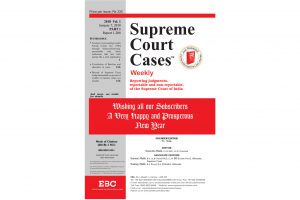Constitutional Law — Judicial power — Scope of — Change of sovereignty/regime — Extent to which acts done and rights accrued, including property rights, under previous Sovereigns/legal regimes have legal consequences under the extant present legal regime — Law summarized: In Ram Janmabhumi Temple case, it was held that the Court has no power to correct historical wrongs, unless it is shown that legal consequences thereof were made enforceable in the present legal regime by the current Sovereign/legal regime, whether directly or through successive Sovereigns/legal regimes. Construction of Babri Mosque in 1528 on foundations of pre-existing 12th Century structure claimed to be Hindu temple. Existence of said ancient Hindu temple, held, would evidence title of Hindus thereto only if it could be demonstrated that every subsequent Sovereign from the 12th Century AD to the present either expressly or impliedly recognised the title of Hindus thereto, the burden to establish the same resting on the Hindus. Bare reliance on report of Archaeological Survey of India establishing existence of the 12th Century structure, held, not enough to establish such claim. Mere existence of a structure underneath the disputed property cannot lead to a legally enforceable claim to title to the disputed property today. Hindus could not establish that any of the Sovereigns from the 12th Century up to Independent India had recognised the title to the disputed property claimed by them based on existence of said underlying structure. Court, held, cannot entertain or enforce rights to the disputed property based solely on the existence of an underlying temple (even if it is assumed to be so) dating to the 12th Century AD. It was further held that though in the facts and circumstances of the case, the Hindus were able to establish possessory title to the disputed property on a preponderance of probabilities. [M. Siddiq (Ram Janmabhumi Temple 5J) v. Suresh Das, (2020) 1 SCC 1]
2020 SCC Vol. 1 January 7, 2020 Part 1

